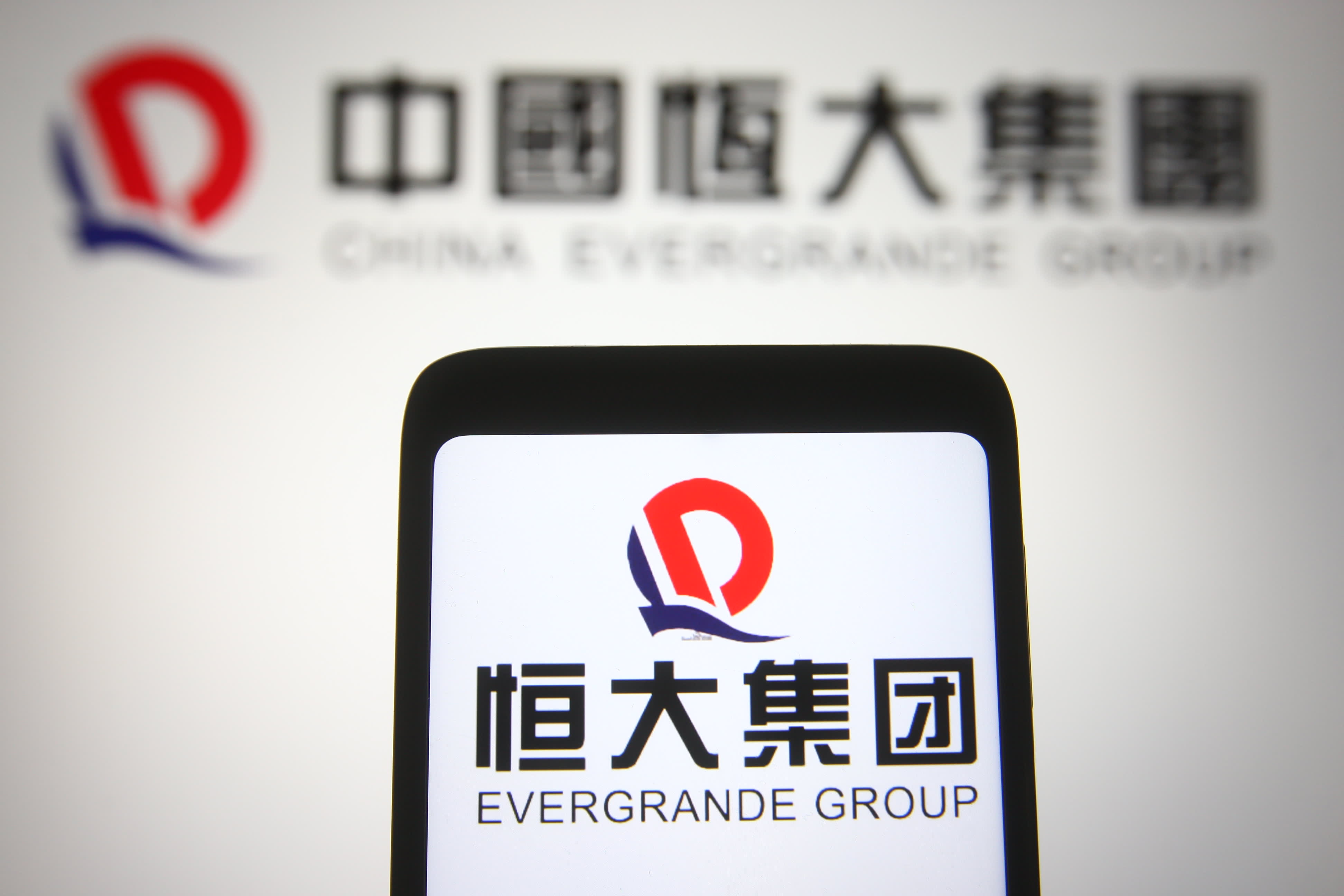BEIJING — The Hong Kong-listed shares of China Evergrande Group fell Tuesday to four-year lows following news of an asset freeze that renewed attention on the real estate conglomerate’s debt troubles.
Evergrande shares declined by more than 14% as of midday Tuesday, following a 16.2% drop a day earlier.
The drop has wiped off about 37 billion Hong Kong dollars ($4 billion) off China Evergrande’s shares since Friday, leaving it with a market value of about 93 billion Hong Kong dollars (nearly $12 billion), according to Wind Information.
China Evergrande shares tumbled more than 60% over the last 12 months as Chinese authorities attempted to cool the country’s hot property market with new restrictions, particularly lending to real estate businesses.
The latest stock drop followed news that in early July, a local court in Jiangsu province ruled that a branch of China Guangfa Bank could freeze 132.01 million yuan ($20.6 million) in deposits from Evergrande Real Estate and its subsidiary Yixing Hengyu Real Estate.
The ruling was disclosed last Tuesday, but didn’t gain market attention until Sunday evening, according to Reuters.
Evergrande said in a statement Monday that Hengyu had a loan of 132 million yuan from the bank in question — due next year on March 27. The company said it would sue the bank, according to a CNBC translation of the Chinese text.
“I am not so much concerned,” Henry Chin, global head of investor thought leadership and head of research Asia Pacific at CBRE, told CNBC’s Martin Soong on “Squawk Box Asia.”
Chin pointed to news in the last few days that indicated to him the Chinese government can gain greater oversight of commercial property debt issues.
Citing sources, Reuters reported Friday that Chinese regulators want monthly disclosures from property developers on a form of debt called commercial paper. The report said Evergrande is the biggest issuer, with its primary real estate group holding 205.7 billion yuan ($32 billion) in commercial paper last year — up 390% from 2015.
Requiring regular disclosures on commercial paper debt will reduce the chance of unexpected shocks from property developers, Chin said. He expects Evergrande to follow other property developers in selling non-core assets to pay their debt and improve their financial condition.
Evergrande was founded in the late 1990s as a real estate developer.
In the last several years, the company has climbed into the ranks of Fortune’s Global 500 list and expanded into industries such as film and entertainment, life insurance and spring water. Evergrande backs Guangzhou’s soccer team.
The conglomerate’s unit for new energy autos — which includes electric cars — has announced ambitious annual production goals of 1 million vehicles by 2025 and 5 million by 2035.
